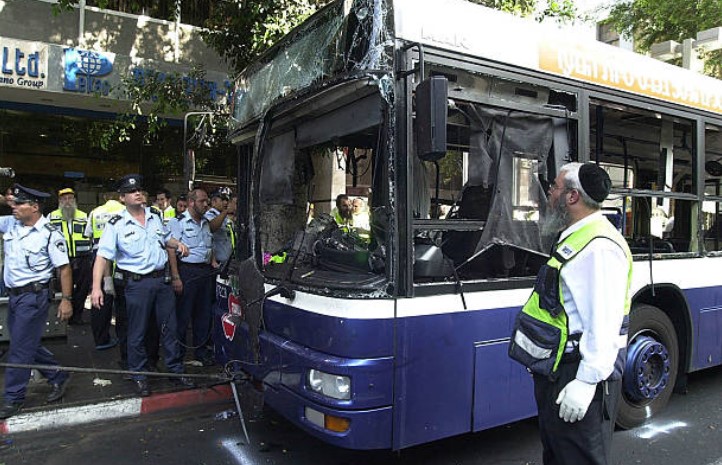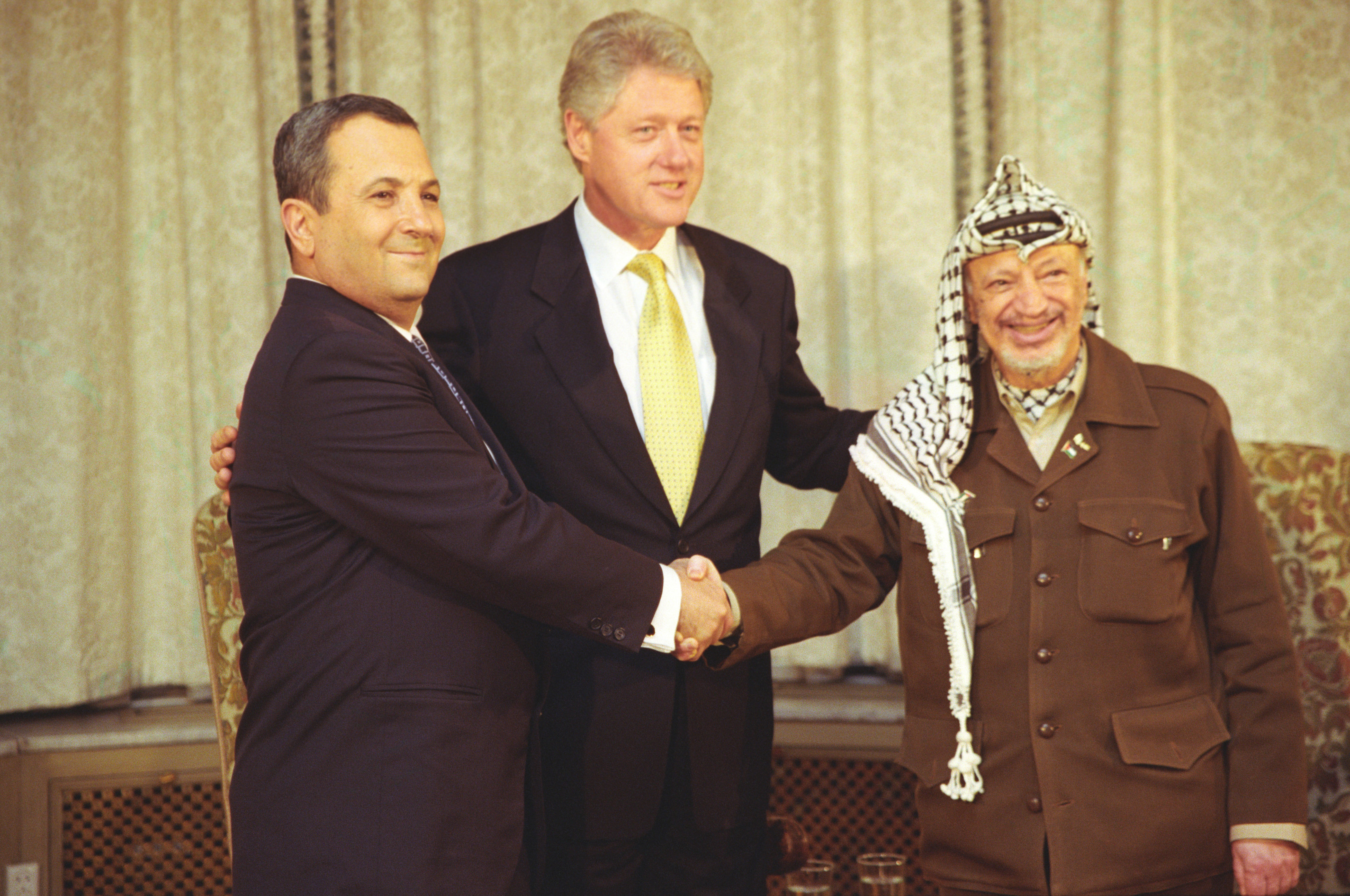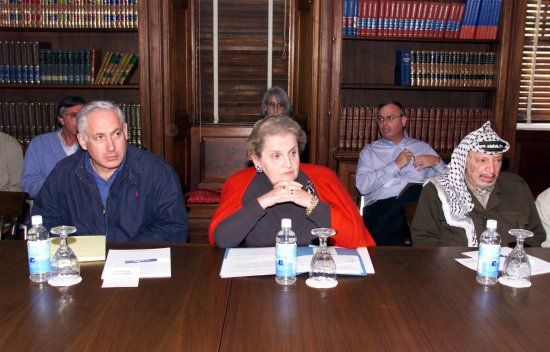|
The Missing Peace
''The Missing Peace: The Inside Story of the Fight for Middle East Peace'' () is a 2004 non-fiction book by Dennis Ross on the history of and his participation in the Israeli–Palestinian peace process and the Arab–Israeli peace process. Ross, an American diplomat, was the Director of Policy Planning in the State Department under President George H. W. Bush and the special Middle East coordinator under President Bill Clinton. Summary After beginning with an anecdote of Yasser Arafat coming to see President Clinton just days before the end of Clinton's second term in office, Ross returns to the period of the British Mandate and continues through the 1980s, giving a brief history of the Israeli–Palestinian conflict and its roots. His own involvement begins in the run-up to the Gulf War and the 1991 Madrid Conference. The book then covers the negotiations between Israeli Prime Minister Yitzhak Rabin and Syrian President Hafez al-Assad, as well as the emergence of the 1993 Os ... [...More Info...] [...Related Items...] OR: [Wikipedia] [Google] [Baidu] |
Dennis Ross
Dennis B. Ross (born November 26, 1948) is an American diplomat and author. He has served as the Director of Policy Planning in the State Department under President George H. W. Bush, the special Middle East coordinator under President Bill Clinton, and was a special adviser for the Persian Gulf and Southwest Asia (which includes Iran) to the former Secretary of State Hillary Clinton. Biography Ross was born in San Francisco and grew up in Belvedere, California. His Jewish mother and Catholic stepfather raised him in a non-religious atmosphere.Washington Post "WhoRunsGov" profile on Dennis Ross , Accessed March 1, 2009. Ross graduated from |
Hafez Al-Assad
Hafez al-Assad ', , (, 6 October 1930 – 10 June 2000) was a Syrian statesman and military officer who served as President of Syria from taking power in 1971 until his death in 2000. He was also Prime Minister of Syria from 1970 to 1971, as well as regional secretary of the regional command of the Syrian regional branch of the Arab Socialist Ba'ath Party and secretary general of the National Command of the Ba'ath Party from 1970 to 2000. Assad participated in the 1963 Syrian coup d'état which brought the Syrian regional branch of the Arab Socialist Ba'ath Party to power, and the new leadership appointed him commander of the Syrian Air Force. In February 1966, Assad participated in a second coup, which toppled the traditional leaders of the Ba'ath Party. Assad was appointed defence minister by the new government. Four years later, Assad initiated a third coup which ousted the ''de facto'' leader Salah Jadid and appointed himself as leader of Syria. Assad impose ... [...More Info...] [...Related Items...] OR: [Wikipedia] [Google] [Baidu] |
Ethan Bronner
Ethan Bronner (born 1954) is a senior editor at Bloomberg News following 17 years at ''The New York Times'', most recently as deputy national editor. Biography Bronner is a graduate of Wesleyan University's College of Letters and the Columbia University Graduate School of Journalism. He began his journalistic career at Reuters in 1980, reporting from London, Madrid, Brussels and Jerusalem. From 1985 until 1997, he worked for ''The Boston Globe.'' He started as a general assignment and urban affairs reporter. He went on to be the paper's Supreme Court and legal affairs correspondent in Washington, D.C. and then its Middle East correspondent, based in Jerusalem.''Jewish Star'': "Halpern: No conflict of interest - I'm thinking" by Micah D. Halpern ... [...More Info...] [...Related Items...] OR: [Wikipedia] [Google] [Baidu] |
New York Times
''The New York Times'' (''the Times'', ''NYT'', or the Gray Lady) is a daily newspaper based in New York City with a worldwide readership reported in 2020 to comprise a declining 840,000 paid print subscribers, and a growing 6 million paid digital media, digital subscribers. It also is a producer of popular podcasts such as ''The Daily (podcast), The Daily''. Founded in 1851 by Henry Jarvis Raymond and George Jones (publisher), George Jones, it was initially published by Raymond, Jones & Company. The ''Times'' has won List of Pulitzer Prizes awarded to The New York Times, 132 Pulitzer Prizes, the most of any newspaper, and has long been regarded as a national "newspaper of record". For print it is ranked List of newspapers by circulation, 18th in the world by circulation and List of newspapers in the United States, 3rd in the U.S. The paper is owned by the New York Times Company, which is Public company, publicly traded. It has been governed by the Sulzberger family since 189 ... [...More Info...] [...Related Items...] OR: [Wikipedia] [Google] [Baidu] |
Taba Summit
The Taba Summit (also known as ''Taba Talks'', ''Taba Conference'' or short ''Taba'') were talks between Israel and the Palestinian Authority, held from 21 to 27 January 2001 at Taba, in the Sinai. The talks took place during a political transition period – Israeli Prime Minister Ehud Barak had resigned six weeks previously on 9 December 2000, and elections were due on 6 February 2001, and the inauguration of President George W. Bush had taken place just one day prior, on 20 January 2001. They were peace talks aimed at enhancing the "final status" negotiations, to end the Israeli–Palestinian conflict. According to the statement issued by the negotiators at the end of the talks, they came closer to reaching a final settlement than in any previous peace talks. Prime Minister Ehud Barak's government terminated the talks on 27 January 2001 due to the upcoming Israeli election, and the new Sharon government did not restart them. Background The Taba Summit took place from 21 ... [...More Info...] [...Related Items...] OR: [Wikipedia] [Google] [Baidu] |
Second Intifada
The Second Intifada ( ar, الانتفاضة الثانية, ; he, האינתיפאדה השנייה, ), also known as the Al-Aqsa Intifada ( ar, انتفاضة الأقصى, label=none, '), was a major Palestinian uprising against Israel. The general triggers for the unrest are speculated to have been centred around the failure of the 2000 Camp David Summit, which was expected to reach a final agreement on the Israeli–Palestinian peace process in July 2000. Outbreaks of violence began in September 2000, after Ariel Sharon, then the Israeli opposition leader, made a provocative visit to the Temple Mount in Jerusalem; The visit itself was peaceful, but, as anticipated, sparked protests and riots that Israeli police put down with rubber bullets and tear gas. High numbers of casualties were caused among civilians as well as combatants. Israeli forces engaged in gunfire, targeted killings, and tank and aerial attacks, while the Palestinians engaged in suicide bombings, g ... [...More Info...] [...Related Items...] OR: [Wikipedia] [Google] [Baidu] |
2000 Camp David Summit
The 2000 Camp David Summit was a summit meeting at Camp David between United States president Bill Clinton, Israeli prime minister Ehud Barak and Palestinian Authority chairman Yasser Arafat. The summit took place between 11 and 25 July 2000 and was an effort to end the Israeli–Palestinian conflict. The summit ended without an agreement. Reports of the outcome of the summit have been described as illustrating the Rashomon effect, in which the multiple witnesses gave contradictory and self-serving interpretations. Summit U.S. President Bill Clinton announced his invitation to Israeli Prime Minister Ehud Barak and Yasser Arafat on 5 July 2000, to come to Camp David, Maryland, in order to continue their negotiations on the Middle East peace process. There was a hopeful precedent in the 1978 Camp David Accords where President Jimmy Carter was able to broker a peace agreement between Egypt, represented by President Anwar Sadat, and Israel represented by Prime Minister Menach ... [...More Info...] [...Related Items...] OR: [Wikipedia] [Google] [Baidu] |
Ehud Barak
Ehud Barak ( he-a, אֵהוּד בָּרָק, Ehud_barak.ogg, link=yes, born Ehud Brog; 12 February 1942) is an Israeli general and politician who served as the tenth prime minister from 1999 to 2001. He was leader of the Labor Party until January 2011. He previously held the posts of defense minister and deputy prime minister under Ehud Olmert and then in Benjamin Netanyahu's second government from 2007 to 2013. He attempted a political comeback, running in the September 2019 Israeli legislative election as the leader of a new party that he formed. His party merged with other parties to form an alliance called the Democratic Union, but the alliance did not win enough seats for him to become a member of the Knesset. A lieutenant general in the Israel Defense Forces (IDF), Barak shares with two others the honor of being the most highly decorated soldier in Israel's history, having taken part in many battles and combat missions. He was appointed Chief of General Staff in 1991 ... [...More Info...] [...Related Items...] OR: [Wikipedia] [Google] [Baidu] |
Wye River Memorandum
The Wye River Memorandum was an agreement negotiated between Israel and the Palestinian Authority at a summit in Wye River, Maryland, U.S., held from 15–23 October 1998. The Memorandum aimed to resume the implementation of the 1995 Interim Agreement on the West Bank and the Gaza Strip (Oslo II Accord). It was signed in the White House by Benjamin Netanyahu and Yasser Arafat, through negotiations led by U.S. President Bill Clinton, on 23 October 1998. On 17 November 1998 Israel's 120 member parliament, the Knesset, approved the Memorandum by a vote of 75–19. The Memorandum determined that it would enter into force on 2 November 1998, ten days from the date of signature. On 18 December 1998, the Clinton administration and the EU declared their contentment about the implementation of the first phase of the Memorandum by both sides. Israel, however, had only implemented stage 1 of the further redeployment (F.R.D.), meaning that it had withdrawn from 2% of Area C instead of t ... [...More Info...] [...Related Items...] OR: [Wikipedia] [Google] [Baidu] |
Protocol Concerning The Redeployment In Hebron
The Protocol Concerning the Redeployment in Hebron, also known as the Hebron Protocol or Hebron Agreement, was signed on 17 January 1997 by Israel, represented by Prime Minister of Israel Benjamin Netanyahu, and the Palestine Liberation Organization (PLO), represented by PLO Chairman Yasser Arafat, under the supervision of U.S. Secretary of State, Warren Christopher. It concerned the partial redeployment of Israeli military forces from Hebron in accordance with the 1995 Interim Agreement on the West Bank and the Gaza Strip ("Oslo II"). According to the Protocol, ''Area H-1'' (about 80%) would come under Palestinian control, while ''Area H-2'' would remain under Israeli control. A large Palestinian majority still lives in both ''Area H-1'' and ''Area H-2''. The redeployment started on 16 January 1997. The protocol has never been ratified by either of the contracting parties. Background The Hebron Protocol initiated the third partial Israeli withdrawal, after the Gaza–Jericho ... [...More Info...] [...Related Items...] OR: [Wikipedia] [Google] [Baidu] |
Benjamin Netanyahu
Benjamin "Bibi" Netanyahu (; ; born 21 October 1949) is an Israeli politician who served as the ninth prime minister of Israel from 1996 to 1999 and again from 2009 to 2021. He is currently serving as Leader of the Opposition and Chairman of Likud – National Liberal Movement. Netanyahu is the longest-serving prime minister in the country's history, having served for a total of 15 years. He was also the first prime minister to be born in Israel after its Declaration of Independence. Born in Tel Aviv to secular Jewish parents, Netanyahu was raised both in Jerusalem, and for a time in Philadelphia, Pennsylvania, in the United States. He returned to Israel in 1967 to join the Israel Defense Forces. He became a team leader in the Sayeret Matkal special forces and took part in several missions, achieving the rank of captain before being honorably discharged. After graduating from the Massachusetts Institute of Technology, Netanyahu became an economic consultant for the Boston C ... [...More Info...] [...Related Items...] OR: [Wikipedia] [Google] [Baidu] |
Assassination Of Yitzhak Rabin
The assassination of Yitzhak Rabin, the fifth prime minister of Israel, took place on 4 November 1995 (12 Marcheshvan 5756 on the Hebrew calendar) at 21:30, at the end of a rally in support of the Oslo Accords at the Kings of Israel Square in Tel Aviv. The assassin, an Israeli ultranationalist named Yigal Amir, radically opposed Prime Minister Yitzhak Rabin's peace initiative, particularly the signing of the Oslo Accords. Background The assassination of Israeli Prime Minister Yitzhak Rabin was the culmination of an anti-violence rally in support of the Oslo peace process. Rabin was disparaged personally by right-wing conservatives and Likud leaders who perceived the peace process as an attempt to forfeit the occupied territories and a capitulation to Israel's enemies. National religious conservatives and Likud party leaders believed that withdrawing from any "Jewish" land was heresy. The Likud leader and future prime minister, Benjamin Netanyahu, accused Rabin's government of ... [...More Info...] [...Related Items...] OR: [Wikipedia] [Google] [Baidu] |

.png)





